High-level officials met at the First Pu’er Forum to explore regional cooperation
The First Pu'er Forum on Asia-Pacific Forests held a high-level segment on 24 October 2023. The segment was themed Sharing New Regional Forestry Development, Exploring New Regional Forestry Cooperation. The event invited senior government officials from seven countries, namely Cambodia, China, Fiji, Laos, Malaysia, Myanmar, and Nepal, along with a representative entrepreneur, to share their insights and ideas.
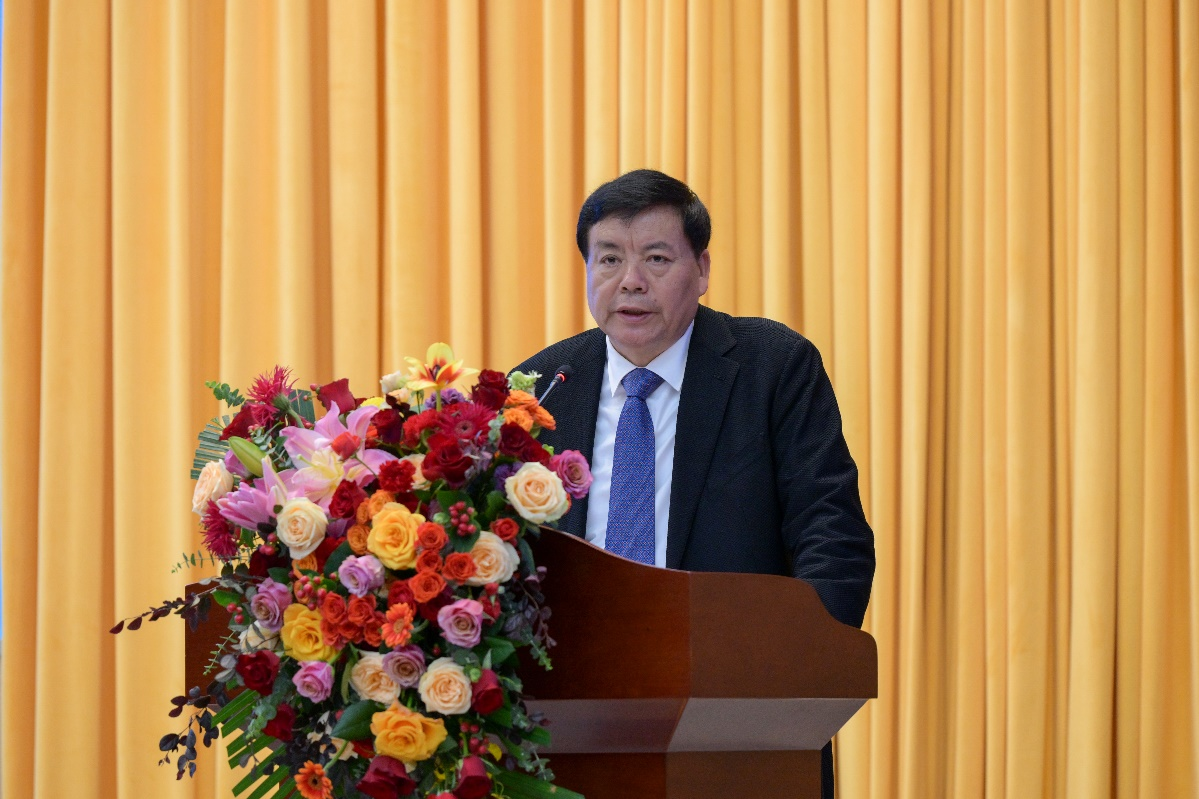
The session was chaired by Mr Zhao Shucong, the President of the Chinese Society of Forestry. The keynote speakers discussed new policy changes, forestry development measures, opportunities and challenges facing regional forestry. They also acknowledged cooperation with APFNet and expressed their support for the Pu'er Forum on Asia-Pacific Forests. All the speakers emphasized the need for strengthening information exchange and practical cooperation through the Pu’er Forum platform to advance the sustainable management of regional forests.
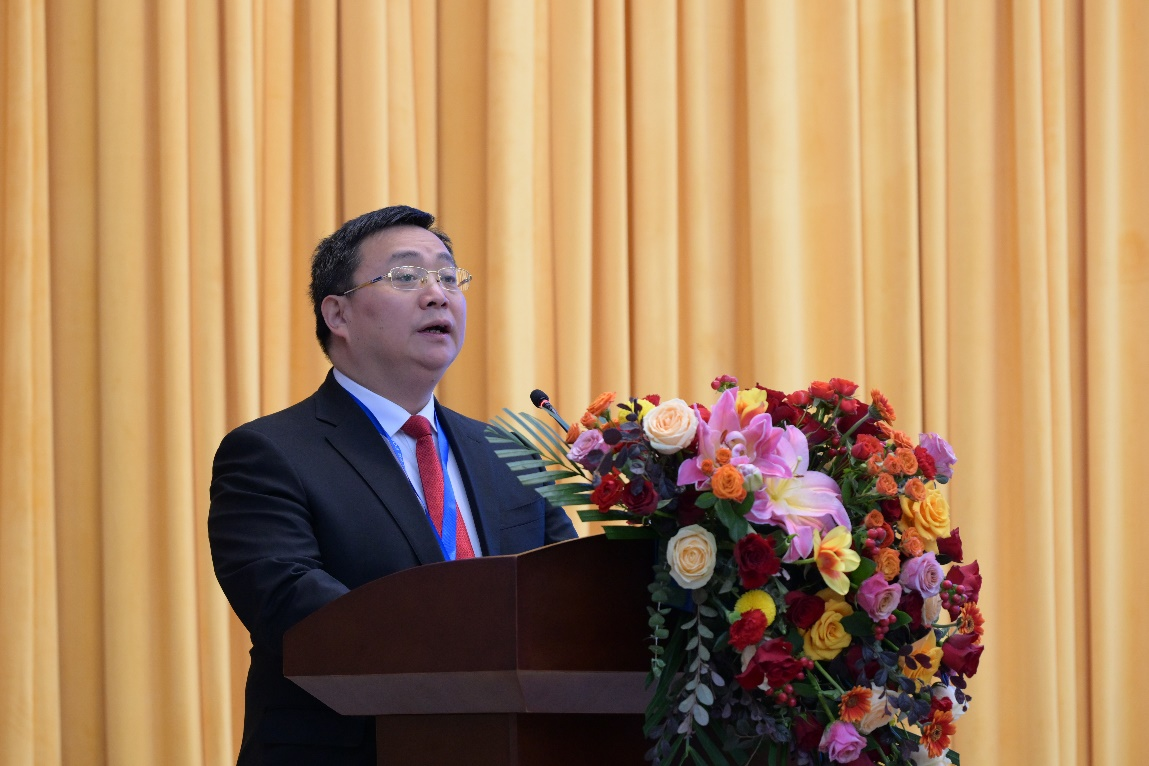
Mr Guo Dajin, the Deputy Governor of the Government of Yunnan Province, shared a brief overview of the current state of biodiversity and forests in Yunnan. He highlighted the province's efforts and achievements in promoting the conservation of biodiversity and the development of a green ecology and emphasized the importance of international cooperation in forestry. Mr Guo also shared the policies, measures, and priorities for future work, including protecting nature reserves, conserving wildlife, promoting green and low-carbon development, and accelerating the modernization of forestry. He suggested measures to enhance international cooperation on forestry in the Asia-Pacific region and to promote regional cooperation in key areas.
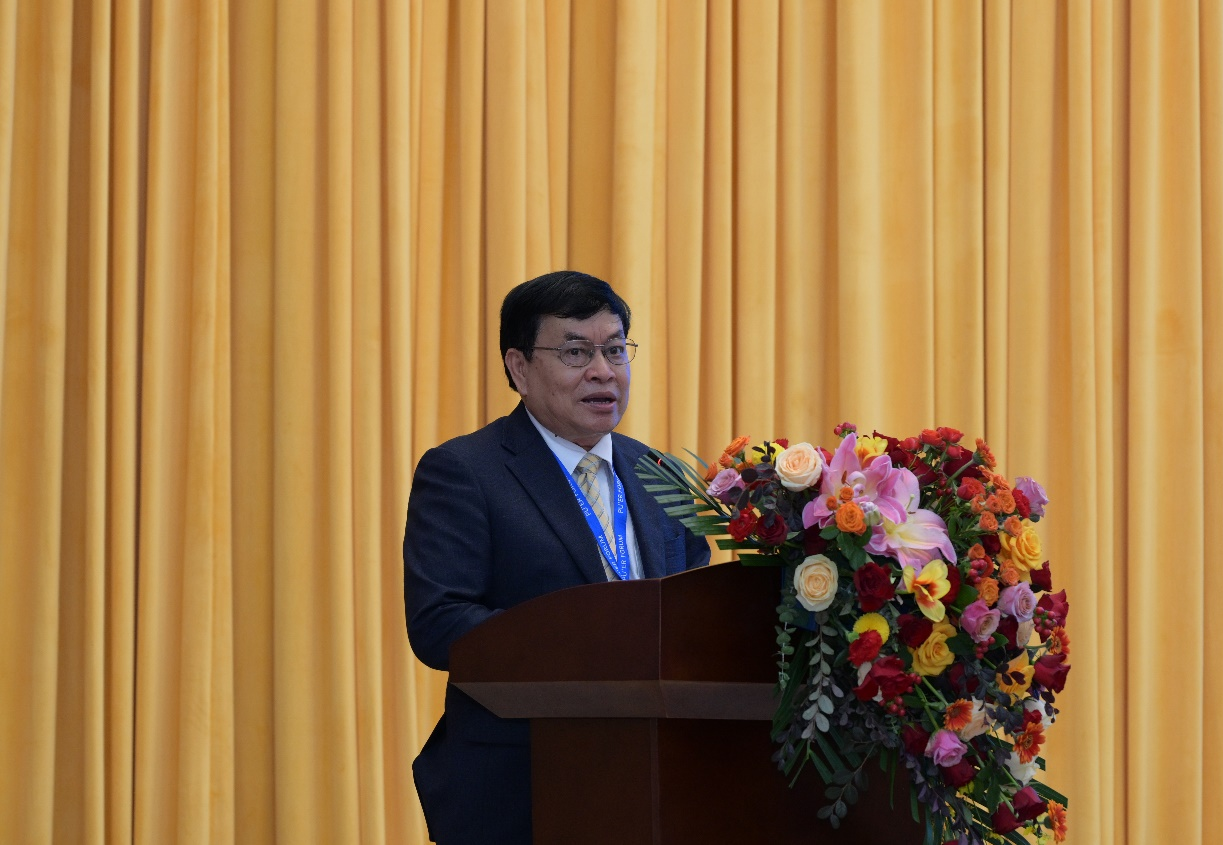
Mr Ung Sam Ath, Secretary of State at Cambodia's Ministry of Agriculture, Forestry and Fisheries emphasized the critical importance of promoting regional forest information exchange and sharing of best practices in the Asia-Pacific region and urged concrete actions to conserve forests and uphold sustainable approaches. He presented Cambodia's policies and initiatives towards achieving the Global Sustainable Development Goals 2030 and the Glasgow Leaders' Declaration on Forests and Land Use. He highlighted the revision and implementation of the Forest Law, the National Protected Area Law, related policies and regulations, and the goals for forestry enterprise development and timber production.
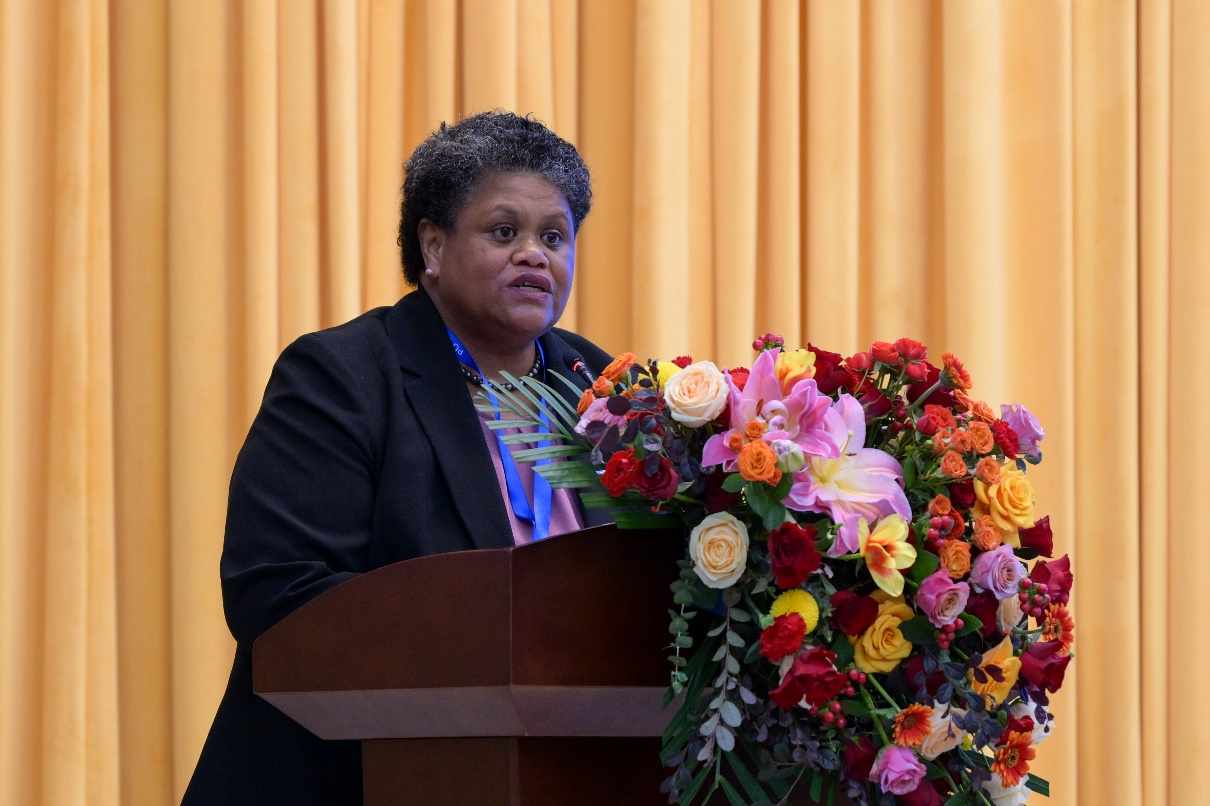
Ms Rokosuka Atelaite Usa, the Permanent Secretary of the Ministry of Fisheries and Forestry in Fiji, presented the current state of forestry in her country. She emphasized the crucial role of forests in national development and shared the results and experiences of various initiatives such as revising and updating policies and laws, strengthening systematic planning for forestry development, and conducting better forest resource inventories. She also highlighted the progress of significant projects like the "15-year planting of 30 million trees plan" and the implementation of emission reduction plans in rural areas. Additionally, she discussed emission reduction purchase agreements and the establishment of forests as carbon stocks in recent years to address climate change.
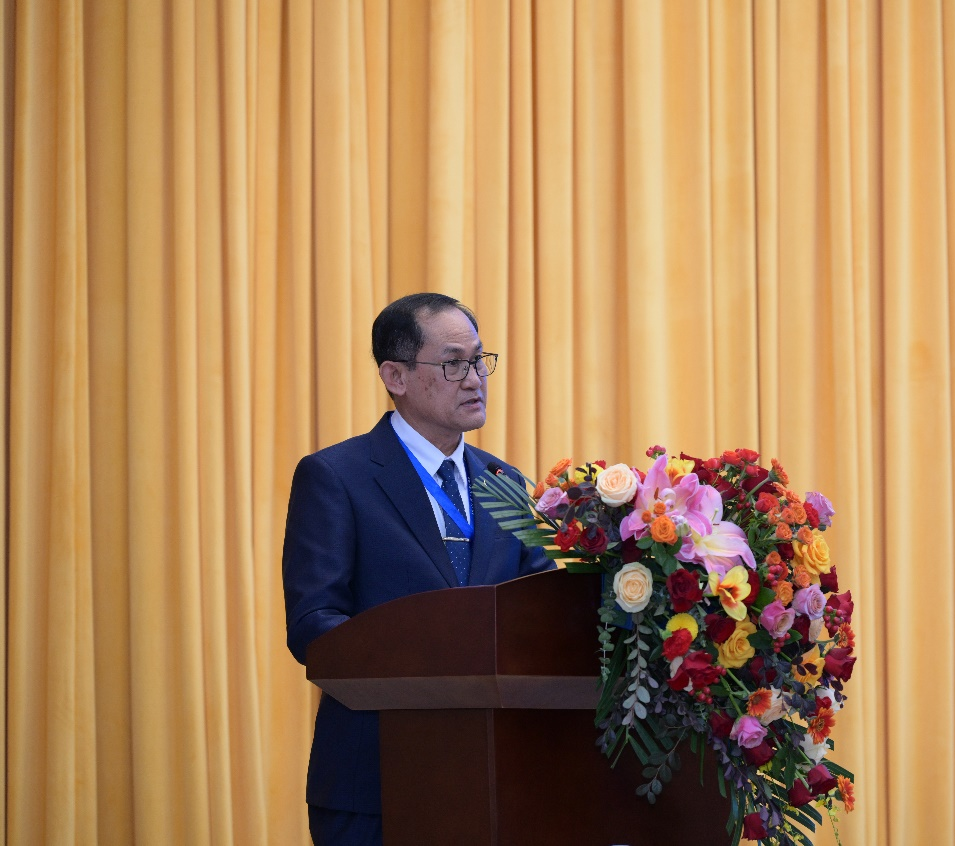
During the session, Mr Sousath Sayakoummane, Director General of the Department of Forestry of Laos, discussed several new forestry policy initiatives in Laos. These initiatives include revising the National Forestry Strategy and Vision and setting targets to reduce emissions by decreasing deforestation and forest degradation while increasing afforestation. Mr Sousath also suggested the need for exchange platforms to facilitate dialogue and collaboration among regional forestry decision-makers, strengthening training, education, and technical support, and encouraging joint R&D projects between countries to help forest governance identify policies, methods, technologies, and innovations. He also emphasized the importance of promoting forest certification, multi-stakeholder regional forest restoration projects, and diversified financing mechanisms. Finally, he expressed his expectations for the Global Network for Sustainable Forest Management Programme.
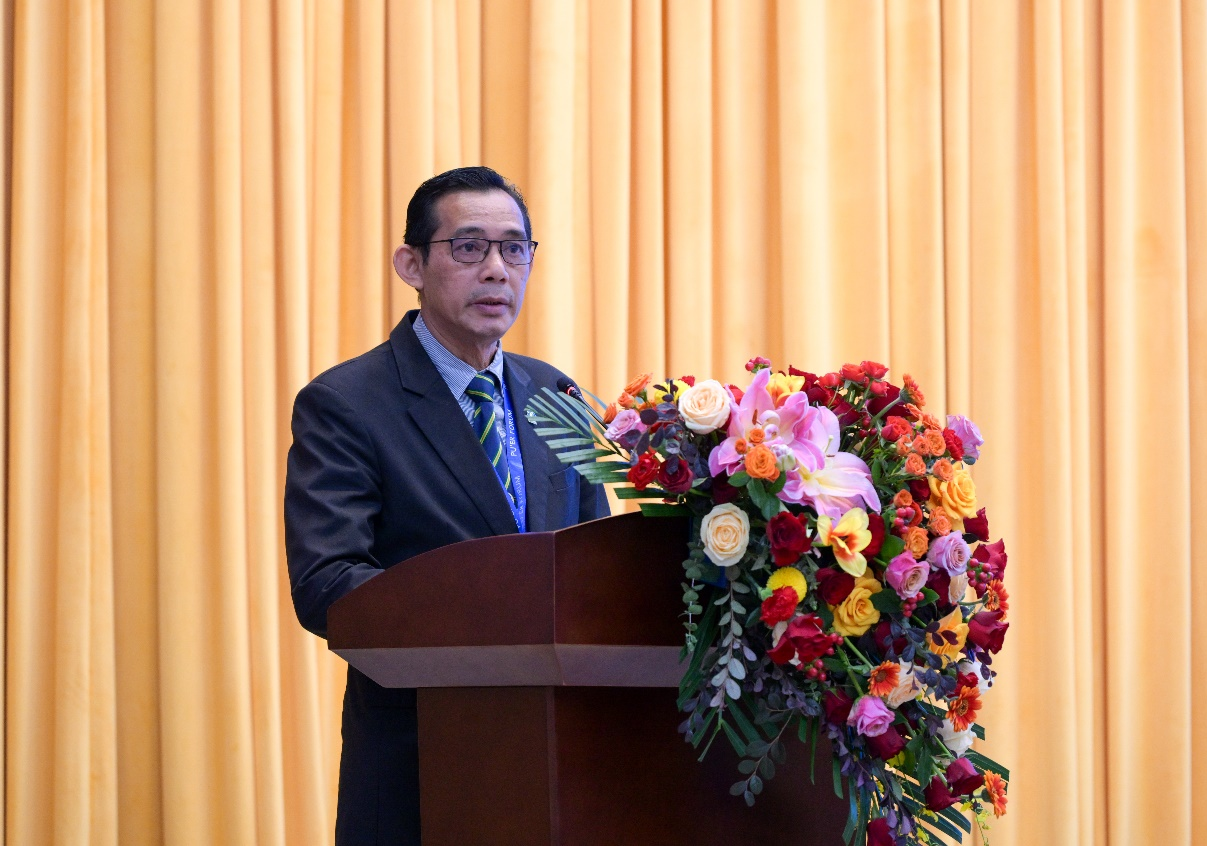
During his presentation, Mr Mohd Rahim bin Rani, Deputy Director General of Forestry Department Peninsular Malaysia, discussed Malaysia's policies and regulations related to forestry, biodiversity, and trade in endangered species. He emphasized the country's commitment to sustainable forest management, highlighted by the certification of 6.15 million hectares of forest land through the Malaysian Timber Certification System. Malaysia is also actively engaged in international and regional forestry cooperation mechanisms and has launched initiatives like the Plant 100 Million Trees Programme and the Degraded Forest Restoration Project to meet its international commitments and contribute towards the global sustainable development goals.
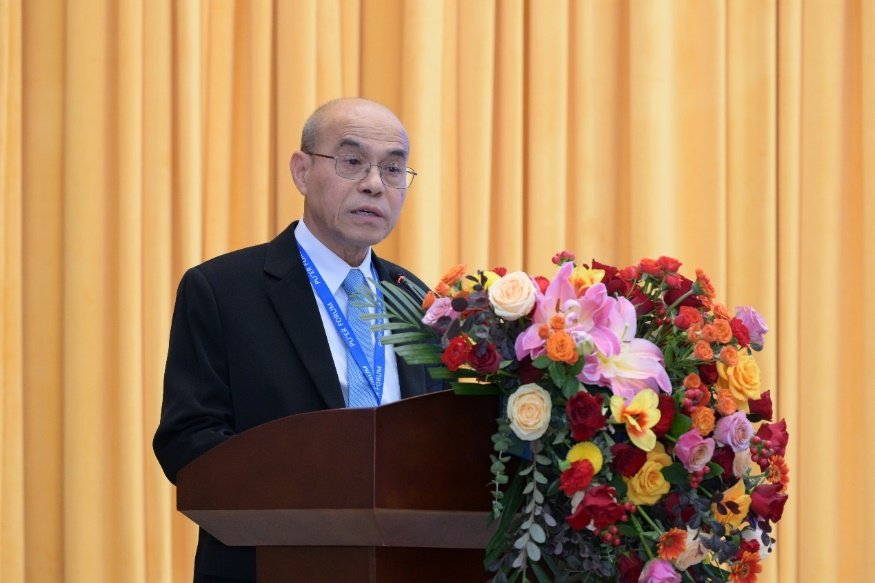
Mr Hla Maung Thein, the Permanent Secretary of the Ministry of Natural Resources and Environmental Conservation in Myanmar, highlighted the country's efforts towards achieving the goal of "natural resources and environment for future generations" as outlined in their Sustainable Development Plan (2018-2030). Myanmar has implemented several laws and policies focusing on land use, environment, climate change, forests, environmental protection, biodiversity, and wetlands. The forestry policies, at both national and local levels, are systematic and closely relevant to international conventions and environmental agreements. The country is also increasing financial support and implementing plans for natural habitats for wild animals. Mr Thein stressed the leading role of the forestry sector in addressing climate change, promoting integrated watershed management, and developing green economic means such as ecotourism to achieve sustainable development and poverty reduction. He also emphasized the importance of international cooperation in capacity-building.
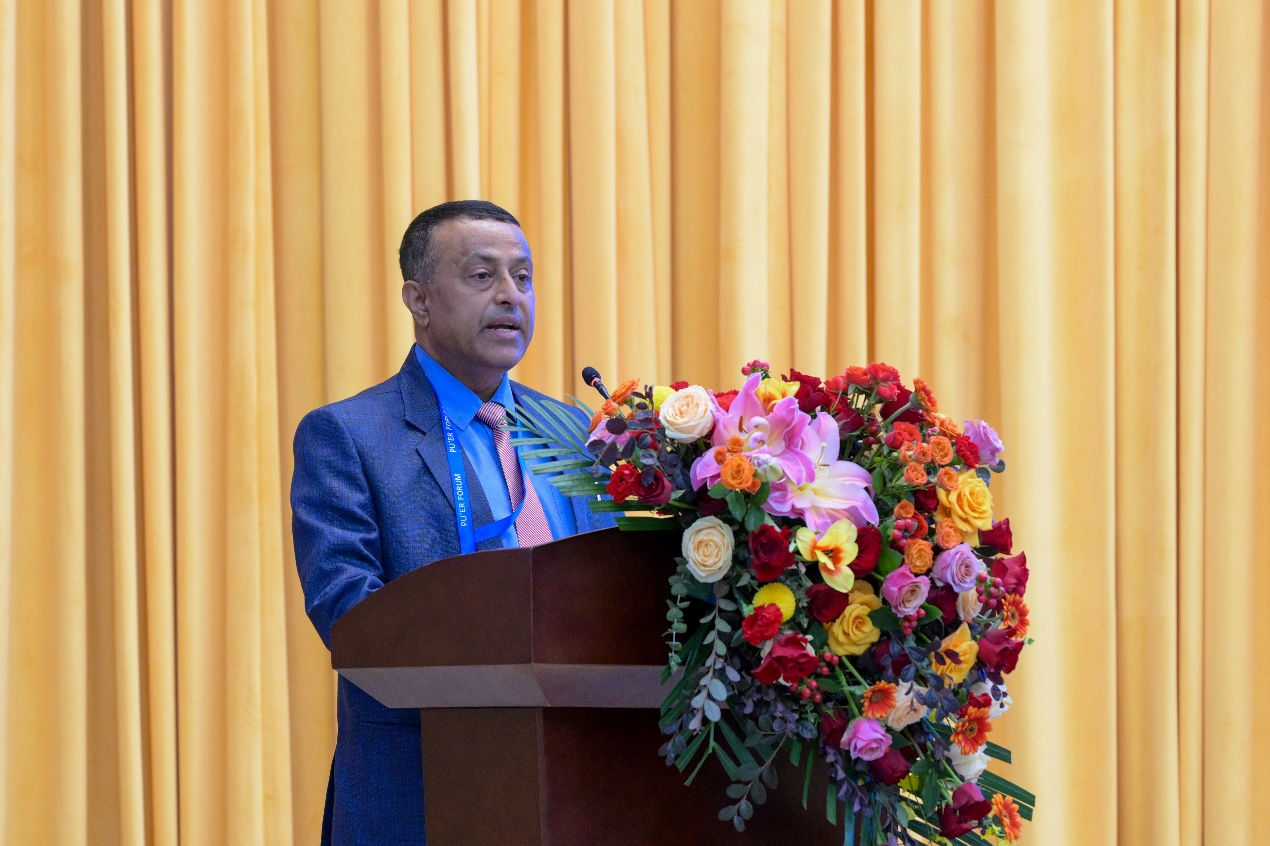
During a presentation, Mr Kharal Deepak Kumar, Secretary of Nepal's Ministry of Forests and Environment, discussed the country's laws and policies related to forests, the environment, climate change, land use, agriculture, wetlands, protected areas, wildlife protection, and other fields. He also elaborated on Nepal's forestry investment situation, including public funds, donations from community natural resource management groups, multilateral and bilateral cooperation, regional cooperation mechanisms, and project support from international organizations. Additionally, he highlighted the areas where the private sector and research academic institutions are involved and their respective roles.
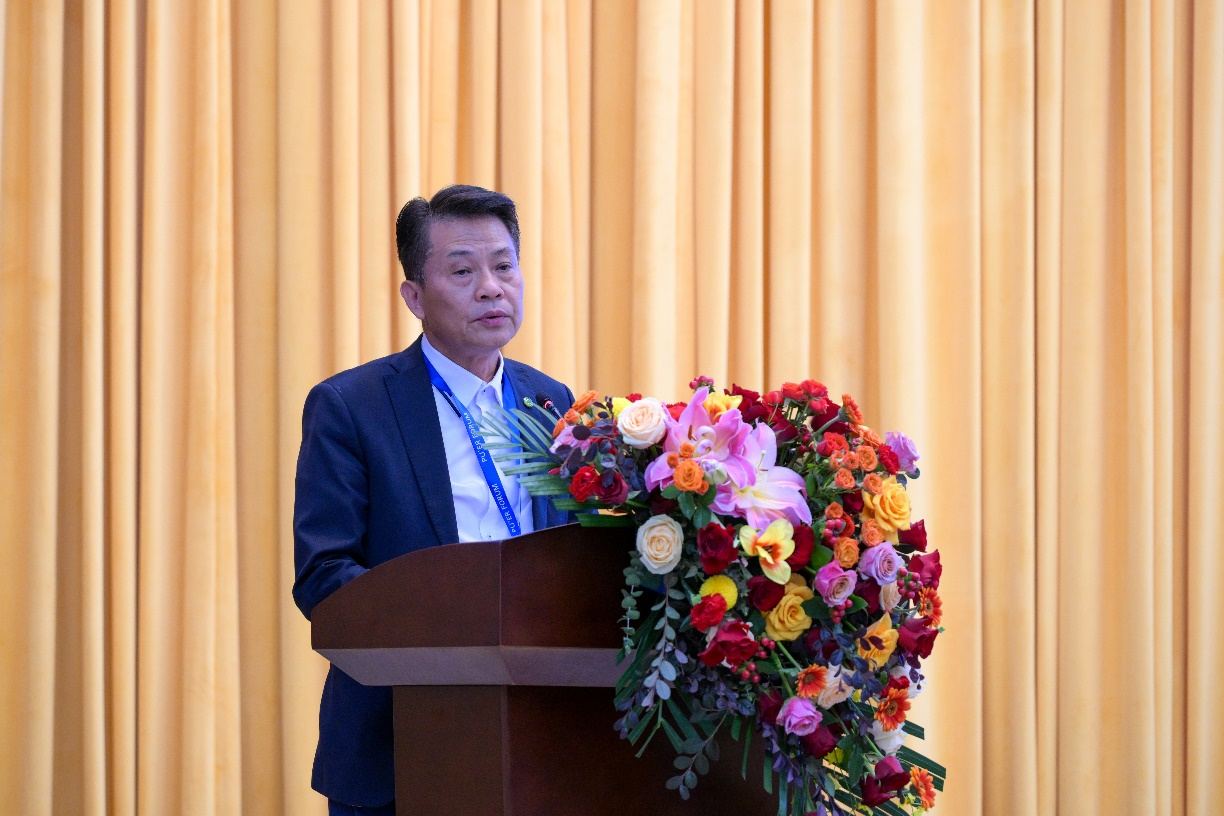
Mr She Xuebin, Chairman of Nature Home (China) Co., Ltd, and Nature Wood Group Ltd analyzed the opportunities and challenges faced by forestry from the perspective of industry, introduced the environmental protection, green and low-carbon business philosophy of Nature Home Group, shared the efforts made by the enterprise in supporting afforestation, carbon neutrality, biodiversity conservation and other aspects, put forward specific measures to strengthen regional cooperation and suggestions for sustainable global forest management and forestry industry development.
In concluding the session, Mr Zhao Shucong reiterated the foundational role of forests for human survival and development, stressing their sustainable management and use is one of the main issues that every country and society must address well, which requires in-depth exchanges, mutual learning and concrete cooperation among governments, enterprises, academic and scientific research institutions, and NGOs.

The session was chaired by Mr Zhao Shucong, the President of the Chinese Society of Forestry. The keynote speakers discussed new policy changes, forestry development measures, opportunities and challenges facing regional forestry. They also acknowledged cooperation with APFNet and expressed their support for the Pu'er Forum on Asia-Pacific Forests. All the speakers emphasized the need for strengthening information exchange and practical cooperation through the Pu’er Forum platform to advance the sustainable management of regional forests.

Mr Guo Dajin, Deputy Governor of the Government of Yunnan Province, China
Mr Guo Dajin, the Deputy Governor of the Government of Yunnan Province, shared a brief overview of the current state of biodiversity and forests in Yunnan. He highlighted the province's efforts and achievements in promoting the conservation of biodiversity and the development of a green ecology and emphasized the importance of international cooperation in forestry. Mr Guo also shared the policies, measures, and priorities for future work, including protecting nature reserves, conserving wildlife, promoting green and low-carbon development, and accelerating the modernization of forestry. He suggested measures to enhance international cooperation on forestry in the Asia-Pacific region and to promote regional cooperation in key areas.

Mr Ung Sam Ath, Secretary of State, Ministry of Agriculture, Forestry and Fisheries, Cambodia
Mr Ung Sam Ath, Secretary of State at Cambodia's Ministry of Agriculture, Forestry and Fisheries emphasized the critical importance of promoting regional forest information exchange and sharing of best practices in the Asia-Pacific region and urged concrete actions to conserve forests and uphold sustainable approaches. He presented Cambodia's policies and initiatives towards achieving the Global Sustainable Development Goals 2030 and the Glasgow Leaders' Declaration on Forests and Land Use. He highlighted the revision and implementation of the Forest Law, the National Protected Area Law, related policies and regulations, and the goals for forestry enterprise development and timber production.

Ms Rokosuka Atelaite Usa, Permanent Secretary, Ministry of Fisheries and Forestry, Fiji
Ms Rokosuka Atelaite Usa, the Permanent Secretary of the Ministry of Fisheries and Forestry in Fiji, presented the current state of forestry in her country. She emphasized the crucial role of forests in national development and shared the results and experiences of various initiatives such as revising and updating policies and laws, strengthening systematic planning for forestry development, and conducting better forest resource inventories. She also highlighted the progress of significant projects like the "15-year planting of 30 million trees plan" and the implementation of emission reduction plans in rural areas. Additionally, she discussed emission reduction purchase agreements and the establishment of forests as carbon stocks in recent years to address climate change.

Mr Sousath Sayakoummane, Director General of the Department
of Forestry, Ministry of Agriculture and Forestry, Lao PDR
of Forestry, Ministry of Agriculture and Forestry, Lao PDR
During the session, Mr Sousath Sayakoummane, Director General of the Department of Forestry of Laos, discussed several new forestry policy initiatives in Laos. These initiatives include revising the National Forestry Strategy and Vision and setting targets to reduce emissions by decreasing deforestation and forest degradation while increasing afforestation. Mr Sousath also suggested the need for exchange platforms to facilitate dialogue and collaboration among regional forestry decision-makers, strengthening training, education, and technical support, and encouraging joint R&D projects between countries to help forest governance identify policies, methods, technologies, and innovations. He also emphasized the importance of promoting forest certification, multi-stakeholder regional forest restoration projects, and diversified financing mechanisms. Finally, he expressed his expectations for the Global Network for Sustainable Forest Management Programme.

Mr Mohd Rahim bin Rani, Deputy Director General of Forestry Department of Peninsular Malaysia
During his presentation, Mr Mohd Rahim bin Rani, Deputy Director General of Forestry Department Peninsular Malaysia, discussed Malaysia's policies and regulations related to forestry, biodiversity, and trade in endangered species. He emphasized the country's commitment to sustainable forest management, highlighted by the certification of 6.15 million hectares of forest land through the Malaysian Timber Certification System. Malaysia is also actively engaged in international and regional forestry cooperation mechanisms and has launched initiatives like the Plant 100 Million Trees Programme and the Degraded Forest Restoration Project to meet its international commitments and contribute towards the global sustainable development goals.

Mr Hla Maung Thein, Permanent Secretary of the Ministry
of Natural Resources and Environmental Conservation, Myanmar
of Natural Resources and Environmental Conservation, Myanmar
Mr Hla Maung Thein, the Permanent Secretary of the Ministry of Natural Resources and Environmental Conservation in Myanmar, highlighted the country's efforts towards achieving the goal of "natural resources and environment for future generations" as outlined in their Sustainable Development Plan (2018-2030). Myanmar has implemented several laws and policies focusing on land use, environment, climate change, forests, environmental protection, biodiversity, and wetlands. The forestry policies, at both national and local levels, are systematic and closely relevant to international conventions and environmental agreements. The country is also increasing financial support and implementing plans for natural habitats for wild animals. Mr Thein stressed the leading role of the forestry sector in addressing climate change, promoting integrated watershed management, and developing green economic means such as ecotourism to achieve sustainable development and poverty reduction. He also emphasized the importance of international cooperation in capacity-building.

Mr Deepak Kumar Kharal, Secretary, Ministry of Forests and Environment of Nepal
During a presentation, Mr Kharal Deepak Kumar, Secretary of Nepal's Ministry of Forests and Environment, discussed the country's laws and policies related to forests, the environment, climate change, land use, agriculture, wetlands, protected areas, wildlife protection, and other fields. He also elaborated on Nepal's forestry investment situation, including public funds, donations from community natural resource management groups, multilateral and bilateral cooperation, regional cooperation mechanisms, and project support from international organizations. Additionally, he highlighted the areas where the private sector and research academic institutions are involved and their respective roles.

Mr She Xuebin, Chairman of Nature Home (China) Co., Ltd, and Nature Wood Group Ltd
Mr She Xuebin, Chairman of Nature Home (China) Co., Ltd, and Nature Wood Group Ltd analyzed the opportunities and challenges faced by forestry from the perspective of industry, introduced the environmental protection, green and low-carbon business philosophy of Nature Home Group, shared the efforts made by the enterprise in supporting afforestation, carbon neutrality, biodiversity conservation and other aspects, put forward specific measures to strengthen regional cooperation and suggestions for sustainable global forest management and forestry industry development.
In concluding the session, Mr Zhao Shucong reiterated the foundational role of forests for human survival and development, stressing their sustainable management and use is one of the main issues that every country and society must address well, which requires in-depth exchanges, mutual learning and concrete cooperation among governments, enterprises, academic and scientific research institutions, and NGOs.



